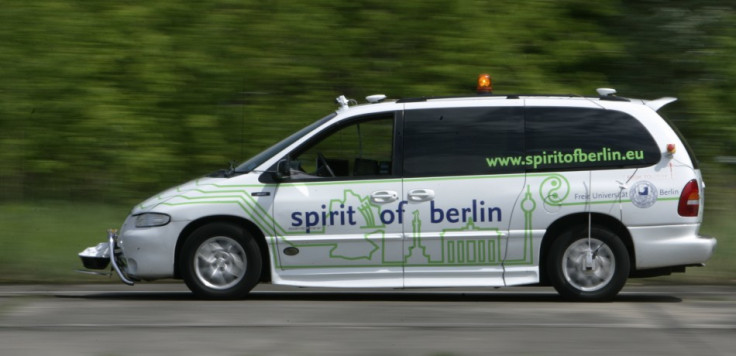Driverless Cars to Hit the Roads

Do you have a car driver? Do you know how to drive a car? Even if the answer is "no", you don't have to worry any more. The driverless car is coming near you.
The car becomes the driver itself. Driverless cars are no more a figment of imagination, the technology is getting real. Nor should parking woes bother you as the car can drop you at your destination and drive back home.
A team led by Paul Newman, a robotics engineer at the University of Oxford, is responsible for developing autonomous cars. "The concerns about the safety of autonomous cars are misplaced in a world where 1.2 million people die every year in road accidents due to human error," New Scientist quoted Paul Newman.
The team is researching on how a robotic visual system can adapt to changing conditions, varying light levels or even seasons. The other challenge occurs as to how the car can take precautions for sudden sun reflections, truck spray, which may blind some censor or simply burst tire. Even the size and the price matters and it has to come down to make the technology a user friendly one.
"The Velodyne - the 64 spinning lasers on top of most driverless cars - give a quickly updated 360-degree, 3D view of the surroundings up to 40 metres away. But cars of the future won't have unwieldy spinning lasers on them," Newman says.
"Automation of cars is going to happen. Computing has caused devastating change and transport is going to be its next target," he added.
Self-driving cars will bring a huge change in our lives. The new technology promises improved safety and better fuel-efficiency. No more danger from the cars as you can walk down your street and cross the road more safely than ever before. The car will slow down on its own.
But the questions arise as how far it is possible for computers to handle them. Will they be able to manage the busy crowd in the major cities? Who is liable in a crash? The law has to revise all these areas to catch up with the new technology.
The idea of driverless cars always had its critics. The safety of adaptive cruise control and automotive lane keeping was demonstrated by Jaguar and Lucas industries in 1994, on UK motorway. But the concept of driverless car was unwelcomed by the media saying that "cars will drive themselves as madness".
Now the barriers have taken a backseat to an extent as the state of Nevada permitted driverless cars on the roads with a special red licence. Bills have been introduced in California, Florida, Hawaii and Oklahoma too. The new technology is all set to take to be introduced in other parts of the world.
© Copyright IBTimes 2025. All rights reserved.





















